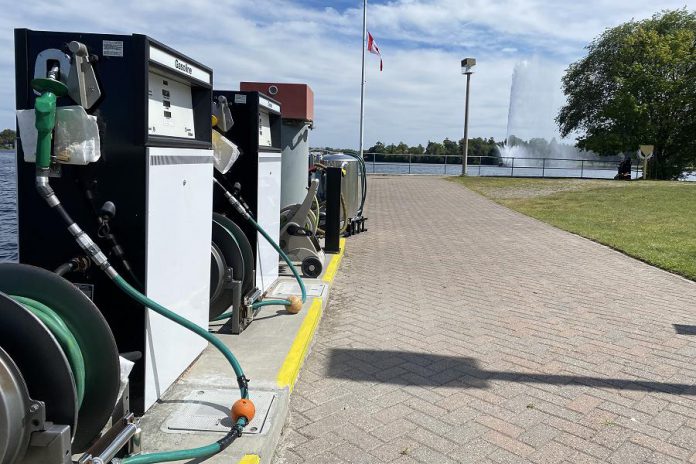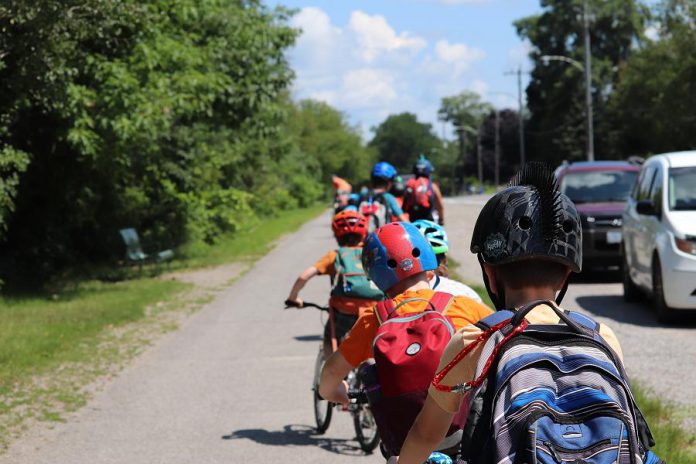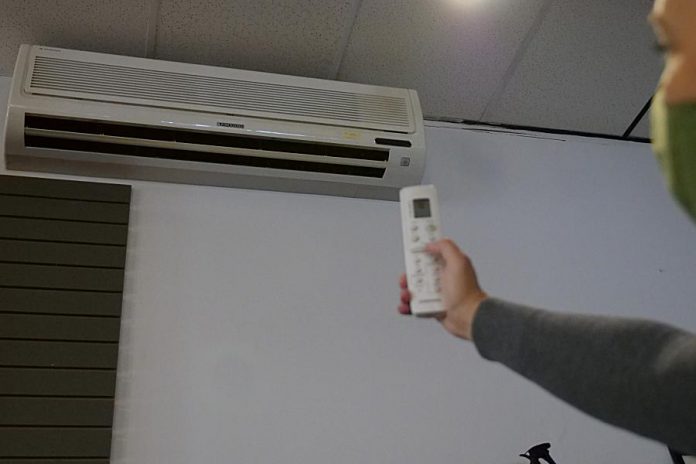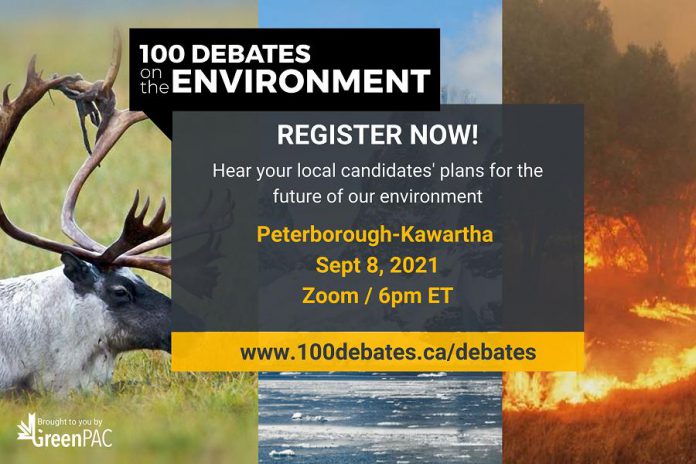
Several recent surveys confirm that the environment is a top priority for voters in this election. It is exciting that so many voters are focusing attention on the need for effective, timely, and cooperative climate action.
This election comes at a critical time, with 2020-2030 the decisive decade for climate action. We have eight years left to meet our 2030 emissions reductions targets and keep the planet sustainable for humanity.
On Wednesday evening (September 8), GreenUP along with several local organizations is hosting an election debate — part of 100 Debates on the Environment across the country — featuring all four major party candidates for the Peterborough-Kawartha riding and moderated by Jim Hendry. Register via greenup.on.ca or directly on Zoom and join us at 6 p.m. on Wednesday.
This is an opportunity to get to know your candidates’ positions on climate change and environmental policy.
I’ve had the pleasure of talking with co-organizers of this local debate about some of the issues.
Here are six environmental issues to inform yourself about and talk about with friends and family.
1. Emissions reductions
We need the federal government to empower and require reductions in greenhouse gas emissions at a minimum of 45 per cent below 2010 levels by 2030 and net zero by 2050. We need to see plans to make measurable, significant progress each year during the next four-year federal mandate. We also need the federal government to put in place legally binding accountability to ensure we keep making progress toward these targets.
In the spring of 2021, Canada passed the Net-Zero Emissions Accountability Act, which puts in place legally binding emissions reductions targets starting in 2030. That is a step in the right direction, but we also need steps now in order to get there.
We need candidates who will support aggressive carbon pricing, carbon regulations, investments in low-carbon infrastructure, and work with climate-sincere provincial, municipal, and corporate leaders, to make progress towards those targets over the next government and beyond.
2. Sustainable and inclusive communities

In alignment with the United Nations Sustainable Development Goals, we need plans to improve equity and create sustainable, accessible, and healthy communities.
That means support for and planning with provincial and municipal-level organizations and Indigenous communities to create better public transportation and more walkable, bikeable, and accessible infrastructure.
This is a potential win-win-win for climate action, the economy, and public health. Studies show that active, bikeable, and accessible communities are healthier communities with more vibrant local economies. These communities also emit fewer greenhouse gasses because they are not built in a way that requires combustion vehicles for trips under five kilometres.
3. Preparing for a changing climate
Even with drastic reductions in emissions, climate change is going to impact our cities, electricity grids, forests, oceans, lakes, and farming in difficult and challenging ways.
Every dollar we can spend now to help prepare for increased flooding, fires, droughts, wind storms, invasive species, and changing seasons will pay us back ten-fold. Climate adaptation is an investment to help our children and grandchildren have a planet they can live on.
Ask your candidates what policies and investments they will advance now to prepare Peterborough for the challenges of a changing climate.
4. Energy-efficient retrofits

In the Peterborough region, one third of our emissions come from heating and cooling residential and commercial buildings.
There is low-hanging fruit here, especially in older buildings. Improving energy efficiency and transitioning off gas heating towards electric heat pumps are quick and big-impact steps toward achieving 2030 emissions reductions targets — and they make financial sense.
In 2021, the federal government launched the $2.6 billion Greener Homes Grant Program. This is a good start, but the huge scope for retrofits in the Peterborough region and beyond requires sustained support for property owners and the service organizations working to meet the huge demand for these energy audits.
5. Indigenous leadership
We need all federal leaders to commit to good relations with First Nations, Metis, and Inuit people.
Indigenous people are stewards of these lands and waters. Indigenous people are key partners and hosts in collective efforts towards climate action and environmental protection and renewal. Indigenous leadership needs space within federal policy.
In spring 2021, Canada passed the UNDRIP Act — the United Nations Declaration on the Rights of Indigenous Peoples. Ask your candidates what key environmental policies they will support to advance UNDRIP in Canada and also through listening to local First Nations leaders.
6. Prioritizing and strengthening the Canadian Environmental Protection Act
Last but not least, we need to update the Canadian Environmental Protection Act (CEPA).
“The Canadian Environmental Protection Act really is the cornerstone of federal environmental laws,” says Lisa Gue, senior policy analyst at the David Suzuki Foundation, in a recent online panel (see video below; Gue’s presentation begins at 8:17).
CEPA was first introduced in 1999 and remains largely unchanged. As the Canadian Environmental Law Association points out, we need updates to CEPA in order to regulate pollution and hazardous waste effectively, and protect vulnerable communities, including children, women of childbearing age, workers, people of low income, and Indigenous communities.
VIDEO: The Good, the Bad and the Ugly – Perspectives on Bill C-28
This past April, Bill C-28 was introduced to update CEPA. Unfortunately, Bill C-28 did not make it past first reading before Parliament was dissolved for the election.
If Bill C-28 is reintroduced and passed, CEPA could become the first federal law to recognize the human right to a healthy environment.

While these six things are important to watch for in this election, it may be more crucial to talk about these issues with your friends and family.
These can be hard conversations to have. The David Suzuki Foundation has put together an online Climate Conversation Coach to help us find common ground on topics that can divide us. You can find it at davidsuzuki.org/climate-conversation-coach/.
Join us for the September 8th debate. Follow @ptbogreenup on social media, and let us and your local candidates know what matters to you in this election.



























